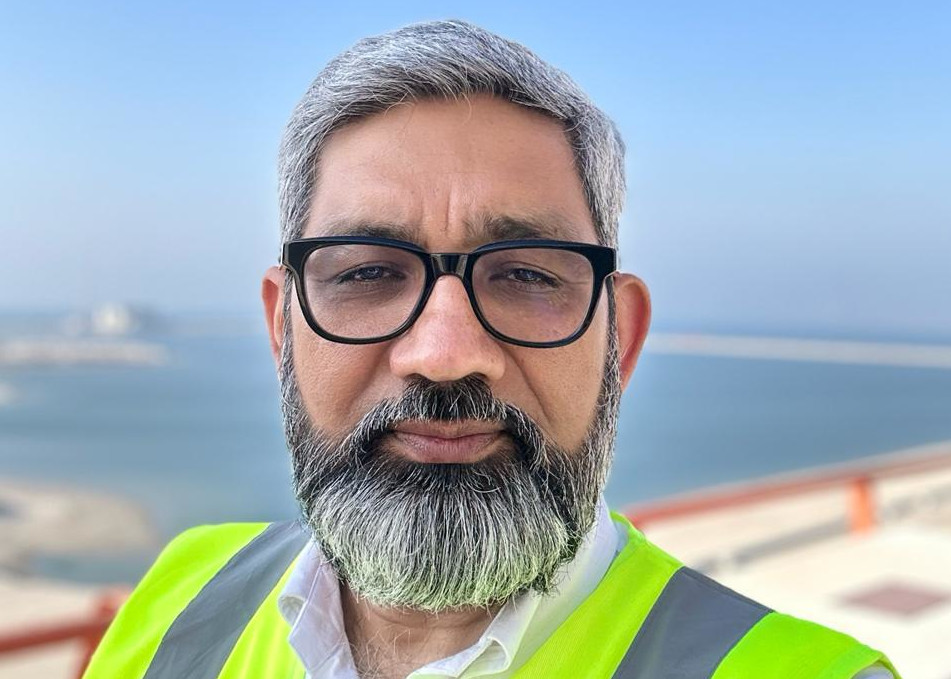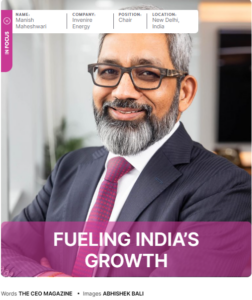
- Author: Sambit Mohanty
- Editor: Ankit Ajmera
- Commodity: Coal, Crude Oil, Energy Transition, Metals, Natural Gas, Upstream
- Link to article
Highlights:
Under investment in upstream sector a risk
Firm focusing on producing oil, gas from discovered fields
India must keep investing in the upstream sector to ensure higher oil and gas production to avoid possible supply problems or volatile energy prices, as it embraces technologies that are more environment friendly, Mannish Mahesshwari, CEO of Invenire Energy, told S&P Global Commodity Insights.
“Flipping the lens to energy security, sustained under investment in upstream without substitutional capacity and substantial scale in clean and new energy could have far reaching consequences in the journey of just transition,” Mahesshwari said on the sidelines of the India Energy Week in Goa.
Most of assets of private equity backed Invenire are discovered fields in India that the company has acquired through secondary market purchases from other firms as well as through primary acquisitions directly from the government. The company also has assets in Indonesia and East Africa.
The private upstream firm is looking to accelerate production of oil and gas from the discovered fields in its portfolio but has no plans to venture into exploration in the foreseeable future.
“We are putting our money where our mind is. As a company, our ability to understand the rocks and the molecules is relatively better than the electrons. We are investing in today’s energy system, which is mainly oil and helping in phasing out coal with the help of low-carbon gas,” Mahesshwari said.
He said that the transition to a world of net zero is more certain today than envisaged in 2015, the year of the Paris Agreement. However, it is the uncertainty around the energy transition pace that adds complexity and risk for upstream projects. The upstream industry has been avoiding spending on projects that would either lock in heavy emissions for years to come or quickly turn into stranded assets.
Right focus
Invenire currently holds stakes in nine blocks in India. Out of these, four are discovered small fields (DSF) blocks — one in Assam and three in Mumbai offshore — comprising a total of about 100 million barrels equivalent of oil and gas. Invenire holds a 100% stake in the four DSF acreages.
The company has a small production portfolio of about 12,000 b/d but has plans to boost that volume to 35,000 b/d by 2025.
According to S&P Global, Invenire Energy’s upstream plans show ambition and promise, considering the wider competitive landscape in India. The company’s experience of operating in a tough post-2014 upstream period that saw oil prices slump will certainly influence its post-2023 growth ambitions.
For assets outside India, the company might have plans to become a non-operator joint venture partner to take stakes in small-to-medium sized producing assets. The company’s focus has been on monetizing discovered resources, having both operator and non-operator portfolios, S&P Global said. Besides India, Invenire has producing fields with 45.55% participating interest in a material acreage located in South Sumatra Basin in Indonesia.
“The upstream industry’s main focus now is to deliver the supply required to meet demand. Most of the industry’s oil and gas investment for the rest of this decade will target advantaged resources — those with the lowest cost, least risk, and possibly lowest Scope 1 emissions. Beyond this decade, to meet demand, the industry will depend increasingly on late-life reserves growth from legacy supply sources.” Mahesshwari said.
Similar views
Mahesshwari’s views echoed comments made by state-run upstream producers ONGC Ltd. and Oil India Ltd. at the IEW conference.
ONGC Ltd., which contributes about 74% of India’s crude oil and around 63% of its natural gas production, has been actively looking to widen its upstream portfolio as it believes that oil and gas will be a major component of the country’s energy mix for the next three decades, while pursuing new crude-to-chemicals projects to prepare for the changing energy landscape, its Chairperson Arun Kumar Singh told the conference.
Oil India Ltd. is aiming to double its exploration acreage in the coming years and seeking partnerships to realize the hydrocarbon potential of offshore regions in Indian sedimentary basins, its Chairman and Managing Director Ranjit Rath said.
Mahesshwari said that there is a need to take a balanced view of energy transition, adding that any shortfall in upstream investments can add to supply issues and volatile energy prices, as seen in recent years. While it’s important to keep looking for opportunities to invest in low-carbon businesses, continuing to responsibly invest in the core upstream business will remain the priority for the company in the foreseeable future.
“The potential in carbon capture utilization and storage is enormous, and the oil and gas sector has unique skills that make it ideally placed to lead in reducing CO2 and methane emissions and decarbonize hard-to-abate sectors through carbon upcycling,” Mahesshwari said.




